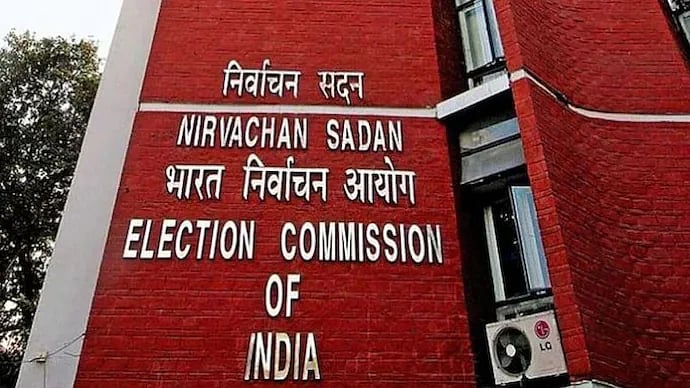Election Commission’s Special Intensive Revision Marks Course Correction After Bihar Row, Focus Shifts To Inclusion Over Verification
Good sense has prevailed on the Election Commission of India (ECI), which appears to have drawn lessons from the controversy surrounding its earlier Bihar exercise. By softening its tone, widening the scope, and focusing on inclusion rather than verification, the Commission has sought to balance the purity of electoral rolls with the sanctity of every citizen’s right to vote.

Election Commission | File pic
Good sense has prevailed on the Election Commission of India (ECI), which appears to have drawn lessons from the controversy surrounding its earlier Bihar exercise. By softening its tone, widening the scope, and focusing on inclusion rather than verification, the Commission has sought to balance the purity of electoral rolls with the sanctity of every citizen’s right to vote. The decision to launch a Special Intensive Revision (SIR) of electoral rolls across 12 states and Union Territories marks a significant course correction in both method and message.
Political Storm over a Technical Exercise
The October 27 announcement has sparked a political storm. Opposition parties allege that the SIR could become a “backdoor NRC” aimed at deleting legitimate voters, while the ruling BJP has hailed it as a long-overdue cleansing of inflated rolls.
In West Bengal, the Trinamool Congress accused the EC of acting at the BJP’s behest, warning of “democratic protests” if genuine voters were struck off. Tamil Nadu CM MK Stalin called it “a conspiracy to rob citizens of their rights.” The Left and Congress voiced similar apprehensions about its timing and transparency. Conversely, the BJP leaders in Bengal and Gujarat lauded it as an effort to “weed out illegal voters” and restore electoral integrity—echoing Union Home Minister’s triad of “detect, delete, and deport”.
From Verification to Inclusion: A Policy Reorientation
The EC insists that the nationwide SIR is fundamentally different from Bihar’s contentious pilot. The new guidelines stress inclusion and continuity instead of documentation and exclusion. The enumeration phase, beginning November 4, will map 51 crore electors across 12 states and UTs—including Uttar Pradesh, West Bengal, Kerala, Tamil Nadu, Rajasthan, Gujarat, and Madhya Pradesh—with draft rolls due on December 9.
Lessons from Bihar: A Shift in Procedure
In Bihar, the earlier SIR had triggered anxiety among voters enrolled after 2003, when the last intensive revision occurred. Many were asked to furnish documents proving both age and citizenship. The new approach drops this demand. Enumerators will instead trace electors through older SIR records—their own or those of parents and relatives—to establish continuity rather than fresh verification.
Smarter Forms, Wider Reach
Enumeration forms have been redesigned with two new columns, allowing voters to link themselves to previous SIR rolls, even from other states. This change recognises India’s mobile population and reduces the risk of migrant workers losing their franchise. Booth Level Officers will now access nationwide archives rather than being confined to state-specific data, reducing duplication and improving consistency.
Citizenship as Criterion, Not Weapon
Documents will be sought only from those who cannot be linked to previous revisions. During the claims-and-objections phase, notices will go out to this limited group so that only disputed entries face scrutiny. Aadhaar remains permissible as proof of identity, not citizenship—a clarification issued after the Supreme Court’s intervention in the Bihar case.
This recalibration signals a larger institutional shift: citizenship is an eligibility criterion, not a political instrument. By making inclusion the default posture, the EC seeks to reaffirm faith in the electoral process, which opposition parties have repeatedly questioned.
Balancing Purity and Inclusivity
Yet apprehensions remain. Memories of the Bihar SIR—where rolls shrank by six per cent—are still fresh. Critics say linking eligibility to older rolls may disadvantage young voters, migrants, and vulnerable groups. Opposition leaders note that documentation thresholds are often higher for women, minorities, and those without ancestral records. While the DMK and Trinamool see political motives, the BJP frames it as governance reform. The EC’s challenge is to show that its procedures are guided by administrative need, not partisan influence.
Administrative and Logistical Hurdles
The SIR’s nationwide scale introduces logistical challenges. Over 5.3 lakh Booth Level Officers will undertake house-to-house enumeration across varied terrains. Assam has been excluded due to its Supreme Court-monitored NRC process, while high-migration areas like Delhi and Chandigarh pose issues of data continuity. Coordinating 51 crore forms within five weeks will demand both precision and sensitivity.
Restoring Trust in the Election Commission
Beyond procedure, the initiative carries deep political implications. The electoral roll is the DNA of democracy; its accuracy ensures legitimacy. Its current recalibration offers a chance to rebuild confidence through transparency, dialogue, and citizen outreach.
Dialogue with Stakeholders: A Step Forward
Encouragingly, the Commission has directed Chief Electoral Officers in all 12 states to consult political parties before the enumeration begins. This participatory approach—absent in Bihar—may defuse tensions and address grievances early. If executed fairly, the nationwide SIR could become a model for future revisions, blending administrative rigour with democratic compassion.
The Larger Democratic Context
At a broader level, the SIR debate reflects India’s ongoing effort to reconcile national security concerns with citizenship rights. The fear of illegal infiltration is genuine in border states, but so is the danger of bureaucratic overreach that could disenfranchise legitimate citizens. The EC must, therefore, act not as a gatekeeper of identity but as a guarantor of participation.
Conclusion: Inclusion as the True Test of Democracy
Ultimately, the nationwide SIR is more than an electoral housekeeping exercise; it is a test of institutional maturity. Having corrected its earlier missteps, the Election Commission must now ensure that every eligible voter, regardless of geography or background, remains empowered to vote. The true success of this exercise will not be measured by deletions but by how many citizens feel reassured that democracy still counts them in.
The writer is a senior political analyst and strategic affairs columnist based in Shimla.
Published on: Friday, October 31, 2025, 12:27 AM ISTRECENT STORIES
-
-
-
-
-
